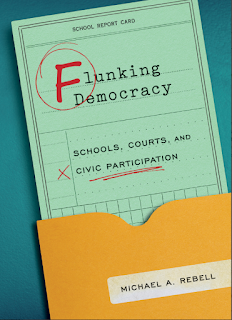Add Your Voice to a National Field-Building Civic Learning Coalition

by Shawn P. Healy, PhD, Democracy Program Director The McCormick Foundation is proud to be a part of a national field-building coalition for change in civic learning. In February, our Board of Directors approved a $200,000 grant to iCivics , the leader of this coalition, and I have been subsequently asked to serve on its steering committee. This work launches at a perilous time, where democratic governance itself is increasingly considered a “bad” or “very bad” means to “run this country,” particularly among our youngest Americans. It builds upon the Democracy at a Crossroads Summit last September, which highlighted the aforementioned trends coupled with the marginalization of school-based civic learning, but also promising policy and funding responses in Florida and Illinois to reverse the latter trend. The conditions are ripe for an expansion of this work, with a strong group of civic learning leaders and a handful of foundations at the table. And a policy window is openin...



